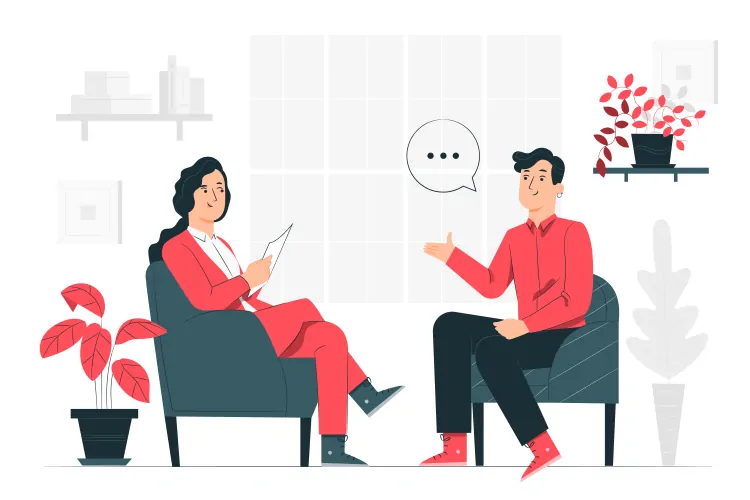Master the IELTS Cue Cards: A Guide for Thrissur Students
This is a detailed guide for Thrissur students on how to master IELTS with the help of cue cards and how it may benefit them to ace the exam.

If you are a student in Thrissur who wishes to master the IELTS exam, cue cards can become your best friend. Flashcards will help you properly practice speaking, which is the key to ace the IELTS. The IELTS cue cards are small cards with prompts or questions on them. They help you orient your thoughts during speaking practice. These are the cards with which the IELTS speaking test is performed. Therefore, in this article, students will get detailed information on how to use these note cards for their preparation for IELTS.
Why Are Cue Cards Important for IELTS?
Flashcards matter enough because they give structure to speaking. Many students get nervous during speaking tests. However, with flashcards, you know exactly what you should be talking about.
How to Use Cue Cards Best
It is vital that you use your IELTS cue cards correctly. To begin with, read the prompt very well. Write the bullet points on a card. Consider what you would say for each point. After making a plan, start talking. Speak with fluency and clarity. The object here is to get you to speak naturally. With enough practice, you will become more confident. Do use a range of vocabulary and sentence structures as well. By doing all this, you will definitely get more marks in the IELTS test.
The Importance of Consistent Practice
Consistent review of cue cards is highly recommended. Just ten minutes of daily speech practice can improve your skills, helping you confidently discuss various topics over time. When you do this more often, your brain turns it into real English and makes you speak faster. Remember, you only need to develop the habit of practising consistently. Celebrate small victories and monitor your progress much more closely.
Cue Cards: An Effective Way to Enhance Fluency
Fluency is one of the skills tested in your IELTS speaking test, so you simply have to get better at it even if you do not believe the jobs require this. Create flashcards and improve your fluency by forcing yourself to speak without pauses. Try not to use too many pauses when you practice. If you mumble or forget something, just keep speaking and try to find another way to articulate it. Additionally, practice speaking English with flashcards regularly. This decreases the probability of a halt or freeze while attempting the test. You can even record yourself to improve your fluency.
How to Combat Jitters With Cue Cards
Speaking English is scary for many people, especially when they take an exam. Use those cue cards to practice with a timer. It helps a person feel less anxious during the real test. So, when you practice speaking with a cue card, act as if you were in an actual IELTS test. With this mental preparation, you will also be less nervous. The other benefit here is that, like all things, practising will make you feel more comfortable. You can practice all that until it feels like nothing on test day.
What Not to Do and How To Fix It?
There are various things that candidates should not do during the IELTS speaking test. Therefore, students must check out a few tips from various IELTS coaching in Thrissur on what not to do using the cards and how to fix your mistakes for the same:
Rapid or Slow Unterbrechung
A very common mistake could be speaking fast or way too slow. Speaking too fast makes the understanding of content difficult. Conversely, if you speak too slowly it appears as though you are unsure of yourself. Flashcards help practise this balancing act. Talk at a regular pace. Take care of your words, and do not hesitate to use them. Students must make an effort to try to speak naturally. Time yourself to make sure you perform under or near that 2-minute limit.
Not Using Enough Vocabulary
To achieve a high IELTS score, it's essential to use a wide range of vocabulary. Master keywords for your speaking test and practice reusing them. Explore synonyms and different ways to express the same idea to enhance your vocabulary. Play around with variations of how you could say the same thing. Your speech will sound more colourful and engaging this way. Contrary to what most people think, never use the word, whether it's good or bad. Use different, more descriptive words instead. Use as rich a vocabulary as possible, and you will get an excellent score in IELTS.
Avoiding Long Pauses
Huge breaks in your address can sound challenging. It can be smart to spend the prep time thinking about what you are going to say. It should sound like you are talking in a steady idea flow. If you find yourself repeating words, keep speaking until you find a different way to express your intended answer. So, make sure you practice often because it speeds up your speech. Eventually, it will be more of a natural process for you, which will save you all those long pauses.
Conclusion
In short, IELTS cue cards offer consistency, build confidence and reinforce fluency. Self-practice using note cards can help you overcome nervousness and speak confidently in English. Use diverse vocabulary, make sure that you don't make the same mistakes multiple times and pace yourself. In Thrissur, students find cue cards to be one of the best ideas for preparing for IELTS. Just continue grinding and be confident, and success will come. Finally, students can check gradding.com for more detailed information about IELTS coaching in Thrissur for interested students.
What's Your Reaction?















